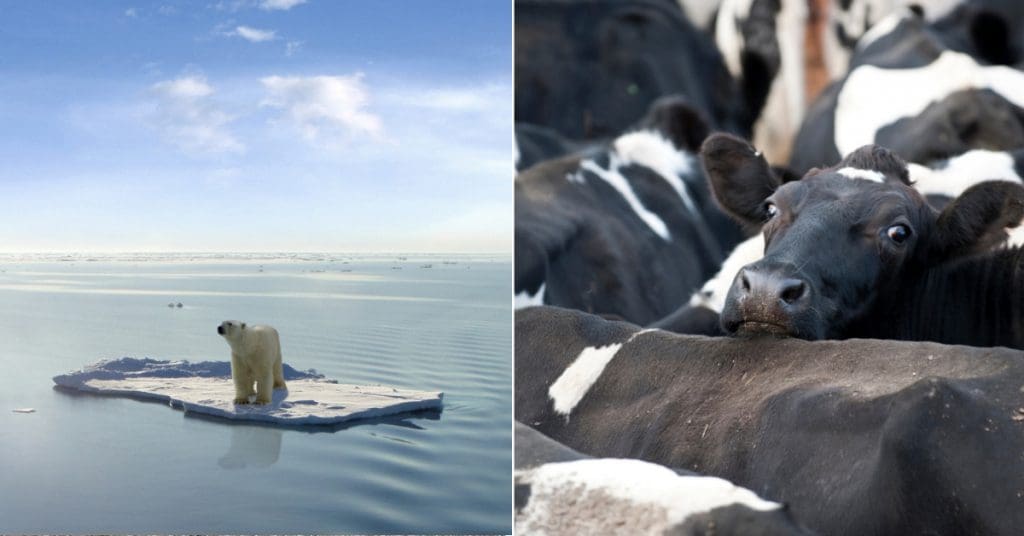“Put simply, when we eat animal products we hurt both farmed and wild animals”
Anyone who is familiar with Vancouver Humane’s work or follows our social media channels will notice that we encourage people to try a plant-based diet. Some people, especially those who see a humane society’s work as limited to helping companion animals, might wonder why we put such emphasis on changing diets.
The most obvious reason is that the fewer meat and dairy products we consume, the fewer animals need to be slaughtered. Another reason is that reducing animal-based food consumption negates the case made by industry for factory farming, which exists because of the demand for intensively-produced, cheap meat and dairy. In short, eating fewer animal products means less slaughter and suffering. It’s also worth noting that 60 per cent of all mammals on earth are livestock, so addressing factory farming means helping large numbers of animals.
“There is substantial evidence that meat consumption contributes to global warming”
But cutting meat consumption benefits animals in other important ways. Most people are now aware of the threat of climate change to the planet – and that means a threat to animals as well as humans. There is substantial evidence that meat consumption contributes to global warming. (The United Nations says that the livestock sector produces 14.5 per cent of human-generated global greenhouse gas emissions.) And there is no doubt climate change is having an impact on wildlife. As the WWF says, “From polar bears in the Arctic to marine turtles off the coast of Africa, our planet’s diversity of life is at risk from the changing climate.”
Aside from contributing to the harm to wildlife through global warming, meat consumption is having a negative impact on animals by causing other environmental damage. A 2017 WWF study found that excessive animal product consumption is responsible for 60 per cent of all biodiversity loss, due to the massive amount of land being used to grow feed for livestock. A previous study on biodiversity loss concluded that: “The consumption of animal-sourced food products by humans is one of the most powerful negative forces affecting the conservation of terrestrial ecosystems and biological diversity. Livestock production is the single largest driver of habitat loss, and both livestock and feedstock production are increasing in developing tropical countries where the majority of biological diversity resides.” Put simply, when we eat animal products we hurt both farmed and wild animals.
“Livestock production is the single largest driver of habitat loss”
Our focus on reducing the consumption of animal products doesn’t mean we don’t also work to improve the lives of animals currently suffering on factory farms. We publicly demand accountability for incidents of deliberate animal cruelty on farms and we routinely push for better conditions for farmed animals through, for example, government consultations.
We also make time to address other issues such as rodeos, animals in captivity and the plight of animals whose welfare is often overlooked.
And we haven’t forgotten our precious companion animals, who we help through our McVitie Fund when they are sick and injured.
It’s your donations that make all this work possible. Whether you want to make a better future for animals or help them right here and now, your support will make a real difference.
Take action: Our Go Veg campaign
News: Our latest article on the Daily Hive

